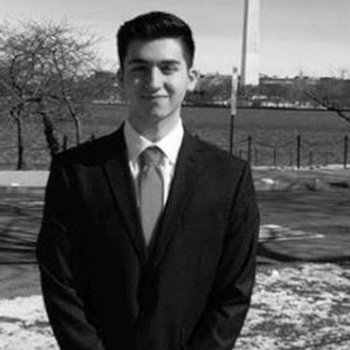Rutgers prez stands up for profs accused of anti-Semitism
At a recent town hall meeting, Rutgers University President Robert Barchi pointedly refused to condemn alleged anti-Semitic comments made by three Rutgers professors.
According to The Algemeiner, Barchi first sought to make a clear distinction between free speech and harassment, and argued that the professors had the right to say what they wanted, a right protected by the First Amendment.
[RELATED: Students pressure Rutgers to discipline anti-Semitic prof]
Likewise protected, he said, would be the right to draw a swastika “on the side of a building on campus,” even if it were to violate rules against vandalism, whereas “if you take that swastika and put it on the door of a dormitory, that’s not protected.”
Barchi then turned his attention to the allegations of anti-Semitism on the part of three professor, attempting to cast doubt on the legitimacy of the claims by remarking that “the one thing that is common to all of these is that they were all brought forward by The Algemeiner.”
One professor, Michael Chikindas, was accused by Israellycool of posting a multitude of anti-Semitic Facebook posts that have since been deleted,
Barchi admitted that Chikindas had made “crude jokes about Israel, Judaism, women, homosexuality, a whole lot of things which most of us would find repugnant,” adding that while legal scholars had confirmed that the professor’s speech was protected, the university is conducting an investigation to determine whether the posts might “create an environment...that would compromise his ability to teach or do research.”
[RELATED: Rutgers disavows prof’s overtly anti-Semitic Facebook posts]
Barchi then went on to defend Professor Jasbir Puar, who previously claimed that the Israeli Defense Forces have “shown a demonstrable pattern over decades of sparing life, of shooting to maim rather than to kill," and once gave a speech in which she declared that “we need BDS as part of organized resistance and armed resistance in Palestine as well.”
Barchi described Puar as a “well-respected scholar,” saying it was a legitimate exercise of academic freedom to, for instance, allege that Israel mines the organs of Palestinian men for scientific research.
Barchi likewise stood up for Professor Mazen Adi, who previously worked as a spokesperson for the Bashar Assad regime in Syria, and once alleged that Israeli forces deliberately seek to murder civilians and bury enemy soldiers alive.
As of press time, an online petition calling on Rutgers to fire Adi had garnered 4,891 signatures, but Barchi insisted that Adi “has not said or done anything in his academic life here that would be actionable,” and has “changed directions” since ending his work with the Syrian government.
[RELATED: Rutgers hires war-crime ‘apologist’ to teach international law]
“We are faced with the difficult challenge to thread the needle on free speech and academic freedom,” Barchi remarked before returning to his earlier criticism of the media.
“I just ask you to keep in mind when you hear things and those things get picked up by another newspaper, there is very often a back-story to it,” he told the audience. “Trace it back to where it’s coming from and ask why is it coming from there and what’s going on, and you may often get a little different perspective on those happenings.”
Campus Reform reached out to Barchi for comment, but did not receive a response in time for publication.
Follow the author of this article on Twitter: @MattAdimando

